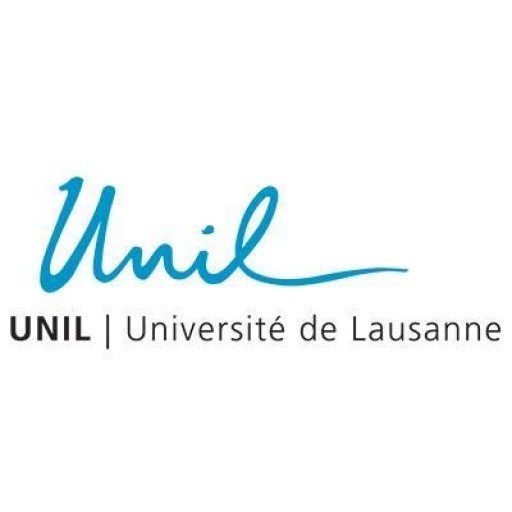Photos of university / #universitaetbern
The Bachelor of Science in Ecology and Evolution at the University of Bern offers students a comprehensive introduction to the fundamental principles governing the diversity of life on Earth. This program is designed to provide a solid foundation in biological sciences, with a particular focus on ecological processes and evolutionary mechanisms that shape the natural world. Throughout the course of the program, students will explore a wide range of topics including population dynamics, species interactions, conservation biology, genetics, and the evolutionary history of organisms. The curriculum emphasizes both theoretical understanding and practical skills, enabling students to analyze ecological data, conduct field research, and apply scientific methods to real-world problems. Students will have opportunities to participate in hands-on laboratory work, field excursions, and projects that foster critical thinking and problem-solving abilities. The program also encourages interdisciplinary approaches, integrating insights from molecular biology, geology, and environmental sciences to address complex ecological and evolutionary questions. Graduates of this program will be well-equipped for careers in ecological research, environmental consultancy, conservation organizations, or further academic studies. The University of Bern's program is characterized by close interaction with faculty experts, access to state-of-the-art research facilities, and an international learning environment that prepares students to contribute effectively to understanding and preserving the planet’s biodiversity. Overall, the Bachelor in Ecology and Evolution aims to cultivate scientifically literate graduates with a deep appreciation for the interconnectedness of life and the capacity to contribute to sustainable solutions for environmental challenges.
Studies in the Master‘s program amount to 90 credits (ECTS), one credit corresponding to 25-30 hours of student input. Full time students can complete the program in three semesters. It consists of:
- 30 credits of formal courses, including 9 ECTS of seminars and 21 other ECTS selected from the Master‘s program, from the University of Bern or other universities. Up to 10 ECTS may be imported from studies abroad.
- 60 credits in the form of an individual research thesis conducted in the affiliated research groups (Master‘s thesis).
The Master‘s program offers specialisations in the the fields of animal ecology and conservation, behaviour, evolution and plant ecology
The following academic qualifications are required for admission to the master's degree program in Ecology and Evolution (mono):
| a) | Bachelor's degree from the University of Bern in Biology with special qualification in Ecology and Evolution |
|---|---|
| b) | Bachelor's degree from the University of Bern in Biology with special qualification in Plant Sciences, provided the required (as listed in annex 1 to the plan of studies) units of credit associated with Plant Ecology have been completed as part of the bachelor's degree program. |
| c) | Bachelor of Science from the University of Bern with another special qualification. Depending on the focus of the bachelor's degree and the special qualification in which the person is interested, successful completion of the master's degree program may depend upon evidence of additional knowledge and expertise or the achievement of additional attainments of up to 60 ECTS credits. The ECTS credits will be listed separately in the diploma supplement as extracurricular attainments. |
| d) | Bachelor of Science, in the branch of studies Biology, from another Swiss university. Depending on the focus of the bachelor's degree and the special qualification in which the person is interested, additional attainments of up to 60 ECTS credits may be required. The ECTS credits will be listed separately in the diploma supplement as extracurricular attainments. |
| e) | Bachelor's degree from a recognized university, provided at least 60 ECTS credits were earned in Biology and the master's degree program can be successfully completed with a maximum additional 60 ECTS credits (admission requirements which must be fulfilled in order to complete the master's degree program). The ECTS credits will be listed separately in the diploma supplement as extracurricular attainments. |
Please consult the admission requirements for the minor as presented in the plan of studies.
- Curriculum vitae in table form with uninterrupted chronology of your education and academic studies up to the present incl. up-to-date passport photo (45 mm high by 35 mm wide)
- Motivation letter (incl. family name, given name, full address, e-mail address, date and signature and – if you have one – mobile phone number)
- If you are holding a bachelor degree's: Originally certified photocopies of your degree (e.g. diploma and diploma supplement). The correspondence of the photocopy to the original must be officially certified.
- Originals (stamped and signed) or originally certified photocopies of all official proofs of your achievements (transcripts) with grades/scores
- Grading system of the degree issuing university, if the grading system is different from ours. Our scale goes from 1 to 6, with 6 being excellent and grades below 4 being unsatisfactory.
- Brief description of the content/learning objectives of the different courses/lectures (annotated course catalog or module handbook)
- Originally certified translations of the original documents (e.g. diploma, diploma supplement, bachelor's or master's degree, transcripts of diploma records), if these are not written in German, English, French or Italian. These translations have to be inseparably connected with the originally certified photocopies of the original documents.
- GRE General Test score (only the results of the test part “Quantitative Reasoning” are relevant for admission)
- Photocopy of your valid passport or identity card
- Application fee: CHF 105
The financing options for the Ecology and Evolution degree program at the University of Bern are designed to support students throughout their studies. Tuition fees are relatively moderate for both domestic and international students, with the standard annual tuition fee for non-EU/EFTA students being approximately CHF 1,000 to CHF 2,000, while students from Switzerland and EFTA countries benefit from significantly reduced or waived tuition fees due to national funding policies. In addition to tuition costs, students should consider living expenses in Bern, which include accommodation, food, transportation, and study materials. The estimated monthly living expenses amount to around CHF 1,200 to CHF 1,500, depending on individual lifestyle choices.
Students enrolled in the Ecology and Evolution program have access to various funding opportunities. Scholarships offered by the university are available based on academic merit, financial need, or specific criteria such as research interests. The Swiss government and other international organizations also provide grants and scholarships to support international students studying in Switzerland. Moreover, many students finance their studies through part-time work; the University of Bern allows international students to work up to 15 hours per week during the semester and full-time during academic breaks, providing a practical way to offset living costs.
Students are encouraged to explore external funding sources, including research grants, foundations, and governmental programs targeted at students studying environmental sciences. The Swiss Student Job Portal lists available part-time job opportunities related to the field of ecology and evolution, assisting students in gaining relevant work experience and financial support simultaneously. It is advisable for prospective students to contact the university's student services or the Department of Ecology and Evolution for personalized advice regarding funding options, application procedures, and deadlines.
Overall, financing a degree in Ecology and Evolution at the University of Bern involves a combination of moderate tuition fees, the availability of scholarships and grants, part-time employment opportunities, and personal savings. Careful planning and early application for financial aid can significantly ease the financial burden, allowing students to focus on their academic and research commitments in this dynamic field.
The Ecology and Evolution programme at the University of Bern offers a comprehensive education in understanding the mechanisms that shape biological diversity and the evolutionary processes that influence species and ecosystems. This degree combines theoretical knowledge with practical skills necessary for conducting research in ecology and evolutionary biology. Students will explore topics such as population dynamics, conservation biology, behavioural ecology, and molecular evolution, gaining insights into how organisms interact with each other and their environments. The programme emphasizes interdisciplinary approaches, integrating fields like genetics, physiology, and environmental sciences to provide a well-rounded understanding of living systems. Throughout their studies, students participate in lab work, field excursions, and research projects, fostering hands-on experience and critical thinking abilities. The curriculum is designed to prepare graduates for careers in research, environmental consulting, conservation initiatives, or advanced academic studies. The University of Bern's collaboration with national and international research institutes provides opportunities for students to engage in cutting-edge projects and gain global perspectives. The programme also focuses on developing analytical skills through data analysis, scientific writing, and presentation skills, which are essential for a successful career in biological sciences. Graduates of this programme are equipped to address contemporary environmental challenges, contribute to biodiversity conservation, and understand evolutionary processes at multiple levels of biological organization. The teaching faculty comprises experienced researchers dedicated to student success and advancing scientific knowledge. The programme is suitable for students passionate about understanding life sciences and committed to contributing to sustainable solutions for environmental issues. Overall, the Ecology and Evolution programme at the University of Bern prepares students for dynamic careers in science and environmental management, fostering a deep appreciation for the complexity of life on Earth.








